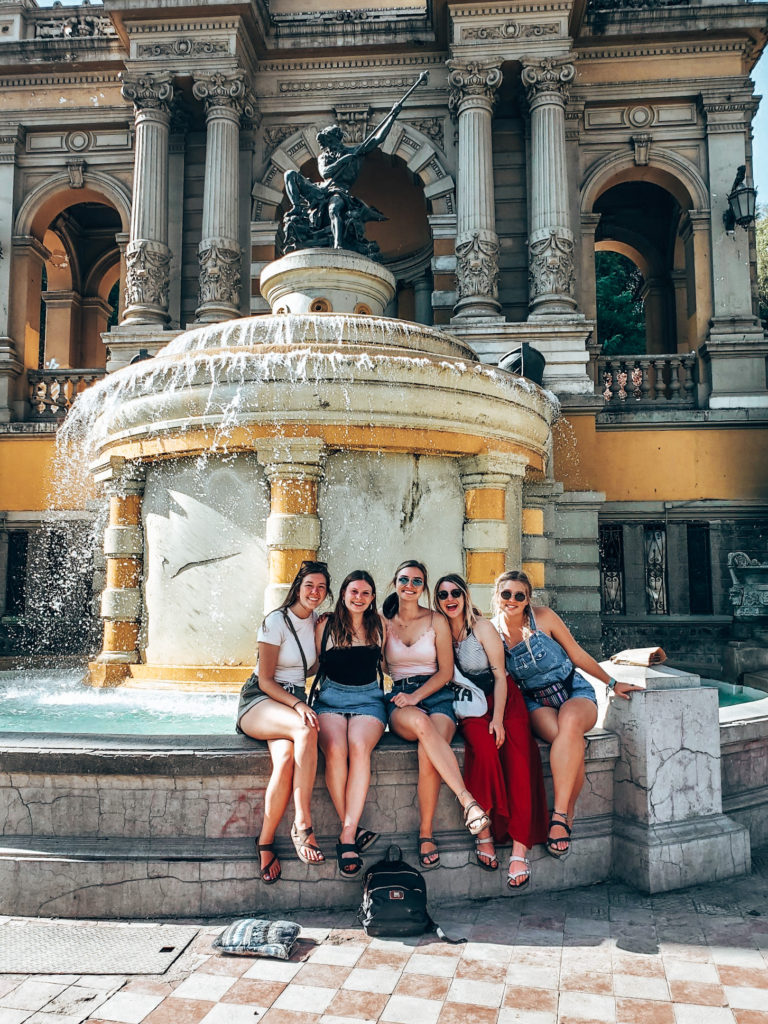
“Sí po, cachai?” Yeah, you know?
Had this phrase been said to me in any Spanish class or come up in a conversation before living in Chile I would have stood there dumbfounded and wondered if maybe it was Portuguese instead of Spanish.
“Quiero una palta y un jugo de frutilla.” I want an avocado and strawberry juice.
I would have asked what on earth a palta was and if frutilla meant a mixed-fruit juice.
You would expect that, going to live in that country for what was supposed to be four months, I would have done some research on Chile. I knew they had some pretty specific slang and used different words on occasion, but I chalked that up to regional dialect and went on my blissfully ignorant way.
The first time I heard acá used instead of aquí, I realized that there are some changes of conjugation and that the word ‘here’ was said in more than one way. They eat once in the afternoon and typically only snack for dinner, kind of like a reverse brunch, and luca means ‘one thousand pesos’. Qué vale? takes place of cuanto cuesta? to ask the price of something so saying to a street vendor “Qué vale esto acá?,” can be answered with “Dos luca.” (The equivalent of about $2.50 USD.)
It was not until my second week in the country, however, that I realized how different Chilean Spanish really is. I was visiting a friend from Mexico who happened to be staying briefly in the same coastal city that my program took us to. Most of us stayed in Valparaíso after our program-sponsored field trip, and we met up with my friend and people from his program during the weekend.
He asked me why I chose to spend my entire semester in Chile of all places, and when I told him that I wanted complete Spanish immersion he actually laughed out loud. I’d noticed a lot of discrepancies between the Spanish I had learned and this style, being told by my host family and other locals that my Spanish was very much ‘from Spain,’ but when he told me that Chileans had the most variant Spanish of all the countries it finally clicked.
Learning to Love Chilean Spanish
Throughout the rest of my time in the country I found myself using carrete instead of fiesta to mean party and pololo in place of novio to mean boyfriend. Choclo and poroto replaced maíz and pimiento for corn and peppers, while I learned that bacán is the word they use for ‘cool’. Extra points if we said ‘Bacán po.’
Po is a variation of pues meaning ‘well’, and is used as a sort of filler word that gets tacked on to everything, cachai?
So, while Chilean Spanish does use a lot of specific words and phrases, once I understood a key few it was hard to believe I hadn’t been using them every time I spoke Spanish. People from most other Spanish-speaking countries, like my friend, will tell you that Chilean Spanish is the least Spanish of them all. In fact, my computer recognizes both Spanish and English words but pololo is underlined in red as I write this. Nonetheless, I grew to love the language changes as much as I loved hearing “Agua con gas, sin gas,” yelled on the metro and “Hay sándwich,” called out by the woman selling food on my walk home.
I grew to love Chilean Spanish as quickly as Santiago started to feel like home for me, and that was fast. I can’t imagine using aguacate again when I want to buy an avocado or asking “Tienes fresa?,” when I want anything strawberry flavoured.
If anything, my knowledge of Spanish is better because I am so much more aware now of how common it is to have a word change or hear phrases that might not be used in other countries. It can be equated to the way that Midwesterners say ‘pop’ when Southerners say ‘coke’ and everyone else says ‘soda’. It’s similar to how people from the United States and England both speak English, but I have held conversations with British people before and managed to understand the context of about half of what was being said. The ‘proper’ way to say things might be the same, but adding in dialect and slang and other discrepancies can easily give one language countless variations.
In the future I might have to catch myself and change carrete back to fiesta but if I ever forget to change a word or a phrase to the more commonly used one, my time in Chile will be reflected. I don’t mind having that as a part of my identity at all, in fact, I welcome it.
Chao chao!
